Educational accreditation is a quality assessment process for Institutes, Universities and Colleges at the institutional and programmatic level.
At the institutional level, accreditation aims to ensure that the institution operates in accordance with the law, has the capacity to issue degrees, and operates in accordance with the laws of the host country and the education law that governs the host country’s operations, ensuring the ability to protect the interests of learners as well as to meet facility standards, teaching and learning conditions, safety for learners, and conditions related to teaching, learning, and issuing of degrees.
Programmatic accreditation ensures that the program satisfies quality standards and that students attain the learning outcomes. Furthermore, this accreditation ensures the quality of teachers in the teaching process, the creation of exam questions, evaluation, and the recognition of results. Programs that pass program level accreditation will be recognized in the labor market, transferable, and cross-accredited by other peer education institutions.
Unaccredited educational institutions cannot ensure the competency of awarding degrees and instructional capacity to students, nor can they evaluate their reputation..
SIMI is accredited by ASIC at both the institutional and programmatic levels and each training session by OTHM, ATHE, Qualifi, LRN, etc. SIMI programs are aligned with the European Qualifications Framework (EQF), the National Quality Framework (NQF), the ECTS credit recognition system, and the Bolognia educational recognition framework.
SIMI is affiliated with the PreUniversity of Switzerland. Taking over and implementing SIMI’s full quality management and accreditation system.
An organization must have the operational capacity and legal authority to comply with the host country’s laws to be accredited. To get a license to operate, an educational institution must meet the authority’s minimal rules on capital, facilities, teaching personnel, teaching and learning circumstances, and so on. Accreditation may or may not be required after obtaining an operating license, depending on the country.
SIMI operates under the license issued by Zug Canton No. CHE-258.08.017.
Although there are no requirements in Switzerland for private higher education systems to acquire other institutional accreditation, SIMI has taken the accreditation and passed the highest accreditation (Premier Institution) by ASIC UK to assure the prestige and benefits of students.
ASIC (Accreditation Service for International Schools, Universities, and Colleges) is an independent accreditation system that the government and the UKVI recognize as a member of the CHEA International Quality Group in the United States and a member of the BQF (British Quality Foundation). Please click here for further information on ASIC.
Thus, SIMI operates at the institutional level under the Canton of Zug, Switzerland, Legal License No. CHE-258.08.017 and is approved at the highest level (Premier Institution) by ASIC.
Programmatic accreditation is unique to each of the learning programs in the institution. In order to gain programmatic acceptance, an organization must be legitimate and institutionally certified.
Unlike other universities, SIMI programs are recognized not just for the whole program itself but also for each of its training steps. Students can earn degrees for each academic year or training stage they are recognized for.
Students who graduate from PUS’s program will be granted extra pre-university degrees from the UK such as LRN, ATHE, OTHM, Qualifi, etc. due to mutual recognition.
SIMI collaborates closely with reputed and accredited institutes and universities. SIMI students can achieve a dual degree, transfer to the programs from any of SIMI’s partners, or have their results recognized through this collaboration. After the student has completed the program, SIMI’s partners will evaluate the program from SIMI, acknowledge the training results, and simultaneously issue SIMI degree.
In addition to recognition according to the National Competency Framework (NQF), the PUS system’s direct coordination with universities aids the process of continuing, transferring promptly and smoothly.
- Accumulate academic results concurrently with various possibilities for transfer, learning continuity, or obtaining additional degrees from partners
- Flexible in deciding where and how to learn
- Recognition of Prior Learning (RPL)
- International recognition with the National Qualification Framework (NQF)
- Students can receive degrees for each training stage, each year and can immediately go to work with a degree for each stage.
- Ensure that candidates are adequately evaluated as the program meets the industry’s overall competency standards.
- Easily identify the proficiency level when using the Level-based degree system. In all recruitment forms and job applications in Europe, qualifications must be converted into Levels so that employers and candidates can understand them easily.
- Ensure that applicants can start working with minimal retraining since the Level-based training system is a practical system that focuses on the ability to work in a corporate environment.
- Ensure that the appropriate individuals are hired for the proper positions due to the Level-based degree (recognized for each training stage) explicitly indicating the knowledge, competence, and level that have been trained.

Zug Canton
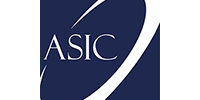
Accreditation for International Schools, Colleges, & Universities, ASIC, UK
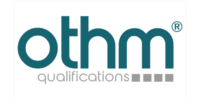
OTHM United Kingdom
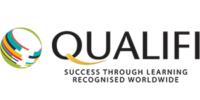
Qualifi United Kingdom
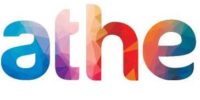
ATHE United Kingdom

Accreditation for Continuing Professional Development (CPD)
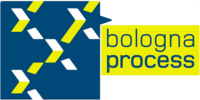
The Bologna Process
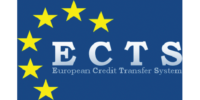
ECTS
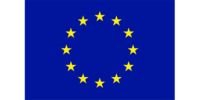
European Union
Global recognition on the "Global Convention on the Recognition of Qualifications concerning Higher Education" 2019United Nations Educational, Scientific and Cultural Organization - Paris 25/10/2019
Global Convention on the Recognition of Qualifications concerning Higher Education) is the convention passed at UNESCO’s 40th session in October 2019. It also applies to graduate and postgraduate education on a global scale. This convention provides standards that respect the process of learning, certificates, and degree transfer, as well as increasing worldwide connectivity between higher education institutions.
The Global Convention on the Recognition of Qualifications in Higher Education gives the right to each individual after obtaining a degree from one nation to be recognized in another country based on equity, transparency, and avoid all forms of patronage and protection, as well as unreasonable decisions that violate human rights, the rights to study, and the rights to be recognized of the learning process if the learner has been through a standardized and accredited learning process which meets the learning criteria.
The Global Convention on the Recognition of Qualifications in Higher Education was created to recognize and respect all learning paradigms, training, and public or private institutions.
SIMI completely meets the standards of The Global Convention on the Recognition of Qualifications in Higher Education, including (1) the capacity to organize training and award degrees, (2) institutional accreditation, (3) programmatic accreditation, (4) European Qualification Framework Competency Assurance System (EQF), and (5) European Credit Transfer System (ECTS).
-
1
Requirements for recognized institutions for higher education
A higher education institution is recognized if it (1) has training and qualifying rights under the laws of the host country and (2) is accredited by one or more credible certifying bodies.
-
2
Requirements for recognized graduate and postgraduate degrees
Degrees for recognition must be issued by an institution that meets the following criteria: (1) the program is accredited or validated by an accrediting body or a third party, (2) the program has attained the equivalent level, (3) the program has earned the minimum number of credits required, and (4) the program has compatible training objectives.
-
3
Desired types of recognition
The types include (2) recognizing the program according to systematic standards, and (3) recognizing the program according to the practicing certificate. Each recipient institution or country will have different requirements depending on the circumstances.
-
4
Required documents for recognition
Depending on the receiving training institution or the legislation of each country, generally under this Convention will include (1) diploma and diploma supplement translated into the official language of the receiving nation; (2) original document for comparison; (3) admission application; (4) the input standard of the program and (5) the output standard and description of the program (usually included in the syllabus of the program).
